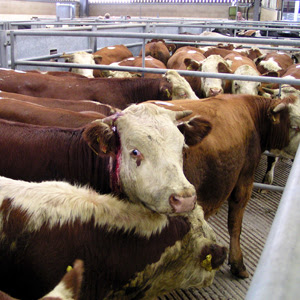There are many reasons you would want to own your own ranch or cattle farm: raise herds of cattle and sell meat and dairy afterwards, raise prize-winning cattle for show in events and festivals, and with the economy being what it is, raise cattle for your family’s personal consumption. Whatever the reason is, starting a cattle farm is hard work, and these tips will teach the basics of owning and starting a cattle farm.
 |
| Image Source: wakpaper.com |
Know what you are getting yourself into
As with all things in life, knowledge is power. Think carefully and research about the cattle industry you want to get into and the kind of farm you want to have. Start small and don’t overspend. Buy only the equipment you need. Learn to prioritize the things you need to do over other things. This is the most important part.
Location, location, location
Choosing a good location is the key to a successful cattle farm, as factors like seasonal variances, vegetation, topography, climate, and markets differ. In addition, establishing your farm in a good location ensures that your cattle can grow healthier, faster.
 |
| Image Source: commons.wikimedia.org |
Choose between dairy or beef
Contrary to what most people think, there are two kinds of cattle you can raise in a cattle farm: dairy or beef cattle. Dairy cattle have huge udders. Compared to beef cattle, dairy cattle produce more milk, which can be made into dairy products. Beef cattle are raised for slaughter and people’s red meat consumption.
 |
| Image Source: animalaid.org.uk |
People say that owning and operating your own cattle farm is one of the greatest joys you can get.
Charles Crispin owns the Hammock Walk Ranch in Okeechobee, Florida. Visit this Facebook page for more information about cattle ranching.




